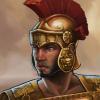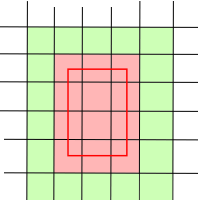Leaderboard
Popular Content
Showing content with the highest reputation on 2014-05-11 in all areas
-
You can see it as a chance to learn more Spanish or French It's incredible how english-native speakers really don't like to learn new languages and prefers others to learn english instead2 points
-
As of right now, in the game there is no way to send out units that cannot be seen by most enemies. A strategy thats as old as time itself is that of having hidden men to report enemy movement. This is a MUST for 0 AD.1 point
-
Some units sould be able to hide in a forest so you can lay ambushes like the barbarians and maybe some spy units with greater line of sight.1 point
-
Okay, so does the Mesoamerican civilisation get an own repository on Github? I'd say yes. (in our concept at least every civilisation should get a own repo or we have to fiddle the things apart later on what will not be automatic and tedious work. So beware)1 point
-
I notice that nobody in this thread is actually a native English speaker. Erik is Swedish, Stan is French, I'm Belgian. So our bias to English isn't from an emotional point of view, but purely practical.1 point
-
I agree with you Oimat. The necessity to allow many differents strategies to be wining should be a main objective of the next releases.1 point
-
Both sides can quit, you know. Technical victory or not. Leaderboards don't matter, especially not in early alpha. I personally like a late game chase, and would approve of mechanisms that allow a crippled player to return to strength.1 point
-
I think you are going for realism too closely here. Sure in reality the victor has to choose between wipe out the opponent completely (more hassle) or negotie a truce that the defeated can follow. But from the player's perspective it's just a game, and it's indeed a game; The time saved here are the time that both the player saved from a prolonged match not the time saved for a real life army, nation, conqueror or whatever, unless this is applied to some kind of competitive multiplayer ladder, I don't see the point of full annilihation vs admit defeat in a normal, casual match. And even then in competitive matchs of most games I've seen one player will automatically resign if he deem the situation hopeless, prolonged the match unnessesarily by hiding your units around WILL be looked down on. From my personal exeperience, the Resign button in RTS is there to serve the purpose that the losing player can end the match quicker when he think there are no hope left, thus saving the hassle for both players, so they can leave and play a new match/do other things. And then we have this "Spy" tech that reveal enemy units for a scaleable price; these mechanics have existed long before and has proven to work effectively, I don't think we should change it and introduce unnessesary mechanisms.1 point
-
I'll give this a try tomorrow during the day, it'll likely fail so I'll try to fix the issues.1 point
-
Hi everyone Sanderd17 showed me this thread a moment ago, and asked me what I was thinking about that. So... let's begining from scratch. 0ad is a RTS : real time strategy. It allows to use different tactics that would allow you to gain advantage over your opponents. Even if, from my point of view, there aren't enough viable tactics (since spartans nerf :'( ). There are only two ways to win in this game (I repeat, that's not enough). Ok, let's say three. The first one : your opponents never played 0ad before and doesn't know how to get to 50pop in 8 minutes. The second one : economic boom. Expanding REALLY fast (100pop and phase 2 at minute 10 provides you a huge advantage) allows you to control 70% of the map without a lot of resistance from your opponents. If they are good on the other side of the screen, you will get in trouble, but having 2 cc on minute 12 is the most important thing you can ever do. I never lost against a defensive player, and there is a really single reason for that : they don't scout, they don't expand, and lets you control 70% of the map while they think they are protected with their walls. The problem with this way of thinking is that quickly, you will have 200pop and 3cc, while the other gets 100pop and 3 lines of walls. Which one is the most interesting to have ? Okay, it will take you longer to kill him... And that's currently my problem in the game, I can't crush easily the ennemy even if I have 300 pop and he has 150. That's a different story. Your CCC is about having fun games that don't last 1hour, and I acknowledge that. BUT if the opponent spammes champion units, you can do the same too ! Kill your citizen-soldiers and start spamming champions. You will get 100 while he has only 30, and the win if for you. It takes longer to do but... you are saying he gets the metal via markets, no ? That is your fault, not his, to let him expand his second cc, not doing any cc in the middle of the trade route, allowing him to control 50% at least of the map to be able to have profitables markets (I remind you that there's a need of distance between markets). The second way to win is a way I relly love to do, and alpha123 will agree with me : be unpredictable, do things that your opponent would never think about. Army camps and ships are the same as a back cc built thank to the fog of war and a big battle that allowed you to send 5 guys in his back while he was focusing on the battle. I don't understand why people don't like ships : they are part of the game and allows you an onther dimension of tactis and strategy. There are a few basics to get protected from ships that send troops on your back : build cc EVERYWHERE, even if there are no ressources there. If you can build a cc near your main town, the ennemy can too. And if the ennemy can, he will. And if he does, you will get in trouble really soon. If you put CC everywhere around you, you won't let place to your ennemy to build a cc near to your town thanks to the territories. So there are my thoughts : if you don't want ships, take maps whithout water. If you don't want armycamps, keep a close eye everywhere on the map, and not only on the battle main scene. For example, when I play, I focus only 30% of the time on the battle scenes. My guys know how to be brave and fight alone whithout me, and that allows me to micro and macro everywhere else I am not expected. Ah, and to bounce about the walls towers.. as FeXor said, we don't use them. Normal towers have more range, firepower and arrows thanks to the tech. And stone is too precious to be used on walls. If you really want, I can teach you the basics of sneaky strategies EDIT : I forgot to give you another advice. Never build your cc in front of ennemy's one, where you can be reached by towers or other stuff... Because you can be counterred by this kind of stuff AND you will be noticed. Always do it 150meters away, inside the fog of war1 point
-
I was suprised when I first read this too, since we don't really have this kind of tradition in my country. But then from the tone of the post I figured it out +1 for the good laugh1 point
-
I'm going to try a new format for the spatial subdivisions which would remove the need for uniqueness sorting, potentially improving efficiency. Basically it's like spatial subdivisions but subdivisions would be a lot smaller ( like about a big bigger than a building footprint, so that most entities boundaries are smaller than a single subdivisions). You only add entities to the subdivisions their center is in, and when you range-query you return the subdivisions around your query too (see schema) sp that you're sure to get it. Entities that are too big would not be put in the subdivisions but at the basic level, so all entities would be considered "close" to all other entities. If we can manage to have few enough of those, this should work well. On the schema, the black lines are subdivision limits, the red square the range query, and the reddened squares are what would be returned by the existing query system, which needs to be sorted for uniqueness, while my method would also return the green squares, but won't sort. So maybe that'll be faster, maybe it won't be, we'll see. My hope is that if we make subdivisions just bigger than most item bounds, we'll have small subdivisions so we wouldn't add too many items, yet it'll be quite efficient since it's still all vectors and mostly static, and we won't have to worry about doubles and stuff like that which would allow faster queries. Maybe.1 point
-
I take your point about copying a vector. It would be slightly less of a problem for a vector of pointers, perhaps, but it would be good to avoid altogether. But you give me a better idea. Given a unit U we would like to move: We (will) know the node N that contains the unit. Get the node P that is the parent of N. (Or the grandparent or higher, depends on the situation.) Traverse P. For each node under P, for each game object in that node, Call a function in the game object that calculates range to U. This eliminates the need to create a big vector of (pointers to) game objects and return them. And it permits us to keep the code for the tree and the game object in separate modules. But of course talk is cheap when I haven't delivered any code yet.1 point







